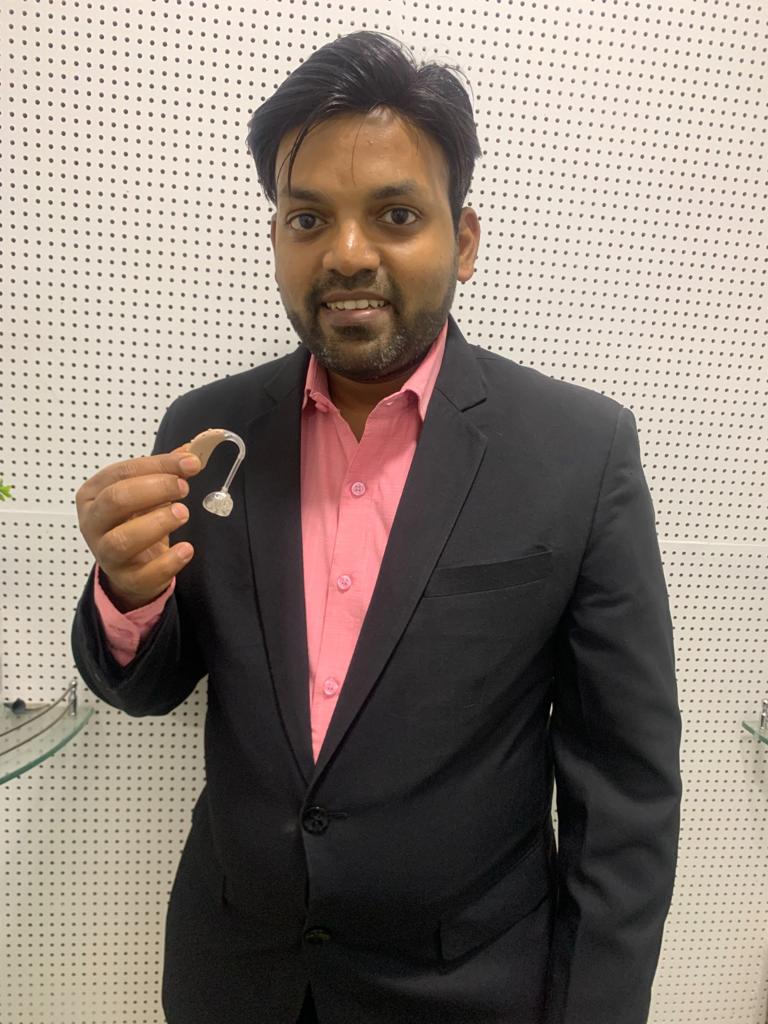3rd Floor, Emerald One Complex, Nr Jetalpur Bridge, Jetalpur, Vadodara-7

Get In Touch Book 15 Minutes Demo
"*" indicates required fields
Our offering to Doctors/Hospitals

Doctor’s own website
Get your SEO and mobile friendly website with proper “call to action” button. This website is integrated with your hospital’s what’s app, appointment automation and Google map location. Grow your local reach with this website.

CRM / Mega Dashboard
This software will be used to capture all your patient inquires and appointments. All inquiries from your social media campaigns will be captured over here.

Appointment Page Automation
As soon as any new inquiry is received through Google or Facebook campaign then SMS will be sent with your appointment link. We also send 2 reminders to retarget the same patient.

What’s app Chat Bot
Enable What’s app chat bot on your clinic’s number so as soon as any new appointment or inquiry comes then chat bot can convert the patient at your doorstep.

Meta (Facebook & Instagram) Campaigns
We are expert in designing right campaign strategy for you. We grow your patient base by 3X to 5X. It is very important to show your ad to the right people. Facebook gives Advanced Targeting options. So with demographic information such as Age, Gender, and Location, you can also target your prospective patients based on their Interests, Behaviour, Mobile Devices, Job Titles, and more such information.

Social Media Marketing
Our team will provide you medical content post, festival posts, reels with required captions & hashtags. All posts will be with your logo, branding. All posts will be designed for your speciality. We provide 10-15 posts + reels per month for any speciality.

Doctor’s own appointments QR code
Improve patient experience. We’ll provide you QR code which you can stick to your file and prescription by which patient can book your appointments.

Google My Business Set up & Optimisation
Continuous optimization of your Google My Business will be game changing to grow your practice.

Google Ads Support
Google Ads offers a range of targeting options that allow doctors to reach their ideal patient demographic. Doctors can target their ads based on factors such as age, gender, location, interests, and search terms.

Monthly Analytics
We check your monthly analytics and change strategy according to your speciality, area and overall response.

Specially designed Medical Content
We have inhouse team of Doctors who design patient education material, all medical content in very unique way. All content are thoroughly researched.

AI based SEO
We write AI based blogs for you which will grow your local reach organically.
250+ Doctors are onboarded
Here, are some of the Doctor’s faces across India who are onboarded on Click2Cure platform and grown their practice. Don’t’ wait and check out our plans.
























Few Examples Of Our Performance
Cancer

Cancer hospital has opted our pre-paid plan of monthly 10 confirmed leads. They are utilizing our service since last 4 months. They are extremely happy with our service.
Spine

Spine surgeon has increased their patient foot fall from 240 patients to 300 patients per month in just 2 months by our service. Surgical patients has increased by 30%.
Orthopedic

Orthopedic surgeon OPD has increased daily by 3 to 5 patients per day. Surgical practice has increased on average by 8 to 10 surgeries in just 2 months.
Dental

Dentist OPD has increased by 3 fold.
Ent

ENT surgeon has seen overall 25 to 30% rise in OPD and surgeries by 3 months of our service.
Ophthalmologist

Ophthalmologist has seen rise of monthly increase of 100 leads from Facebook and Instagram campaigns.
Follow us on Social Media
Grow Digitally
Grow Unlimited Plans
(MOST POPULAR)
Grow Digitally
Grow Unlimited Plans
Grow Unlimited on Our Yearly plans on
50% discountRecent Articles

Click2Cure: AI-based Best Digital Marketing...
Grow Patients by 5X with best Digital Marketing Platform Introduction In today’s fast-paced digital age, staying ahead in the competitive healthcare industry…

Click2Cure: Driving Performance Marketing and...
Discover the power of Click2Cure Click2Cure is an innovative platform by Doctor’s Digital Marketing that revolutionizes doctor marketing strategies in India. 100+…

Click2Cure: Revolutionizing Doctor’s Digital Marketing
Introduction: In today’s fast-paced digital era, healthcare professionals face the challenge of reaching and engaging with their target audience effectively. Recognizing this…
FAQs
We are one stop solution for Doctors growth journey to increase their patient foot fall by 3X to 4X. Our tech solutions are specially designed for Doctors. Our automation practice, remarketing, retargeting strategies are specially designed for Doctors. Book 15 mins demo to know more about our plans and services.
- Landing page is specially designed for Doctor’s brand & logo. Doctor’s information, core expertise, scope of work, photographs, videos will be shown to potential patients.
- Website has multiple pages whereas Landing page is one single page specially designed with specific marketing goal. So, if you want to design a campaign to get executed in your nearby area then Landing page will help you land all your potential patients for conversion.Website goal is to serve information and Landing page goal is to convert patients.
- Our Landing pages are highly conversion friendly and SEO friendly. So, Doctor will get lot of organic reach without running any campaign. Your landing page will be mapped with your Google, Facebook and Instagram marketing campaigns to increase your practice.
Book 10 mins demo with us to know more about Landing page.
This software is the main beauty of from all our products. Mega Dashboard CRM is capturing all your inquiries at one source. All your social media campaigns will be mapped with this software so Doctor and their team can work on all inquiries captured. Our CRM software will send SMS notifications with your appointment page to all inquiries so potential patients can book your appointments fast. If you are visiting multiple clinics on different times, everything is configurable in our CRM.
Appointment page is specially designed for Doctor to convert more and more patients. Appointment page is used for
- Book new patient appointment
- Book follow up patient appointment
- Provide super experience to all your patients
- Click2Cure will provide you QR code which can be sticked at reception area or on your files/prescriptions so patients can easily book your appointment.
All appointments will be captured in our CRM software. Doctor can reschedule or cancel any appointments at any time.
We provide what’s app chat bot on your own number through which you can send them the link of your appointment page, videos, brochure, photographs etc. Doctors can also send reminders or broadcast messages on what’s app to convert more & more patients. Now a days, it’s all about providing BEST experience to your patients who spends 6 to 7 hours daily on their mobile phones.
Our team will provide you proper training to run your advertising campaigns on Google, Facebook, Instagram, Linked In etc. All your advertising campaigns will be mapped with your own landing page. We provide service where we design unique content for you and convert more & more patients.
There are different ways through which your medical practice will be increase. Our team will guide you in detail once you’re onboarded.
- Your own landing page which is highly SEO friendly and highly conversion so organically potential patients will land on this page when they are searching something on internet or through social media campaigns.
- We’ll design special campaigns with specific marketing goal on Facebook, Instagram and Google to generate quality leads and convert them.
- Retarget & Remarketing strategy.
- Google Search Campaigns by setting up Google Ads.
- What’s app chat bots & What’s app marketing tools.




